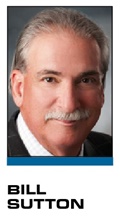As a professor, I am blessed in most cases (and cursed in others) to work with men and women who are often referred to as millennials — undergraduate or graduate degree candidates between the ages of 18-26. I am also a huge advocate and proponent of call centers, but I find myself questioning whether there might be a more efficient way to use these centers and make them more productive from a sales perspective.
In past columns, I have talked about “gameification,” using events to sell and using sales contests and other forms of incentives to motivate employees. This time we’re going to talk about the telephone.
Look at your own phone answering behavior over the past five years. Has it changed? I know mine has. I am registered on “do not call” lists, and I let call waiting audibly announce who is trying to call me on my landline (yes I still have one). And I glance at my iPhone to see who is wanting to speak with me.
But that isn’t the main reason I am questioning sales training in 2014 and the way call centers are used. I am questioning the fact that we insist that the young people we are hiring focus the majority of their time on using the phone to dial and talk to potential customers. In their world, the phone is a device for texting, creating and sharing contacts, and last but far from least, a magic portal to learn about each other and ultimately connect with each other through social media.
 |
| Photo by: JAKE REYNOLDS / PHILADELPHIA 76ERS |
I am not saying close down the call centers and forget about the leads. There are very qualified leads that we either generate or purchase that should be contacted. But a call center shouldn’t be exclusively used for telephone calls. Sales calls can take the form of online communication through social media platforms such as Facebook, Instagram and LinkedIn. Furthermore, sales training needs to embrace these forms of communication and encourage new ways of communicating that might be more effective for the salesperson and generate
measurable results and ROI for the organization.
During a recent visit to the Philadelphia 76ers, I met Ashley Shapiro, who had been working for the 76ers for less than a year. Ashley has been successful using LinkedIn for several reasons. First, when she moved to Philadelphia from Arizona she had no network in the area. Knowing that she needed to get past the “gatekeeper” to connect with a company’s decision-maker (CEO or sponsorship executive), she discovered that LinkedIn offers that pathway. Using the social media channel, Ashley was finally able to explain who she was and what she is able to do with a variety of targeted messages and in less time than it would take to attempt 10 phone calls. The reach and breadth of social media, with its built-in referral and connecting mentality, can achieve much greater exposure than solely calling via telephone.
I don’t want to share all of Ashley’s secrets with the competition, but I would like to share her LinkedIn description:
Account Executive
Philadelphia 76ers
I work with a wide variety of businesses and individuals to add value to their professional and personal lives. I customize my work for each client based on preferences and interests to create memorable experiences within our world-class venue.
Businesses have found that quality time shared with their clients and employees strengthens relationships, shortens sales cycles, and generates additional revenue.
If you are interested in considering the Philadelphia 76ers for business or personal use, give me a call directly … or email me …
Ashley has other approaches tied into who she is and networks that are important to her. She has made a point to join groups that are relevant to her goal and is an active participant on discussion boards and other forms of contact. Ashley emphasizes that the opportunity for customization of introductions, being able to research profiles and see the types of groups the target audience belongs to, all afforded through LinkedIn, has really been key in her approach and her success.
Her most recent LinkedIn efforts have resulted in a meeting with a $3 billion, industry-leading construction/real estate company. After weeks of unsuccessful interactions with the gatekeeper and being told “we don’t entertain clients — we are the clients that get entertained,” she focused on the HR department because of the vice president and the recommendations he made on LinkedIn for past/current employees, from interns to executives. She sent him a message via LinkedIn and two days later had a meeting scheduled to determine if the 76ers might be a good solution for rewarding or offering incentives to employees.
While old dogs may not fully learn new tricks, it’s nice to know that youngsters full of enthusiasm and open to the world around them may offer new tricks from which we can learn.
Some of these thoughts and topics will be discussed this week at the Sports Facilities and Franchises conference and Ticketing Symposium in Pittsburgh. I offer them here for anyone who is unable to attend and to suggest that they may want to attend this workshop in 2015, or any other industry programs that cause them to question if there are better ways to accomplish sales training in the world of 2014 and beyond.
Bill Sutton (wsutton1@usf.edu) is the founding director of the sport and entertainment business management MBA at the University of South Florida and principal of Bill Sutton & Associates. Follow him on Twitter @Sutton_ImpactU.






